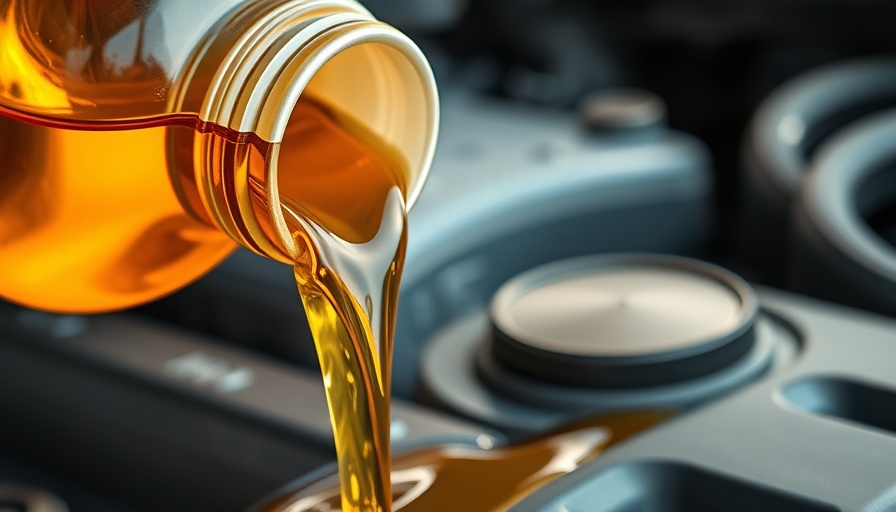
Understanding Engine Oil Grades: Why It Matters
Have you ever been confused by the labels on motor oil containers? The designations like 5W-30 or 10W-40 might seem like code, but grasping their significance is vital for the health of your vehicle. Since the introduction of motor oil grades in the 1950s, consumers have been given a systematic way to understand oil viscosity and effectiveness in various conditions. Today, as cars become more sophisticated, understanding these grades is crucial to protecting your engine.
The Science Behind Oil Viscosity
Oil viscosity refers to the thickness of the oil and its ability to flow at certain temperatures. Imagine comparing the fluidity of honey versus water; that's viscosity in action. Higher viscosity oils (like 10W-40) provide better protection under extreme heat, while oils with lower viscosity (like 5W-30) maintain fluidity in cold climates. Knowing your engine's requirements is not just a suggestion—it's a necessity.
Decoding the “W” in Engine Oil Grades
The “W” in oil grades stands for “winter,” which highlights how the oil performs in colder conditions. A common misconception is that it signifies “weight.” The first number before the W indicates how well the oil behaves in the cold; the smaller this number, the better the oil performs in frigid temperatures. For instance, 5W oil will flow better than 15W oil in winter conditions, which is essential for vehicles starting in colder climates like northern California.
The Importance of Manufacturer Recommendations
Each vehicle is designed to operate with a specific oil type, tested and recommended by the manufacturer. These recommendations are critical for ensuring longevity and efficiency. Ignoring the owner’s manual can lead to costly repairs or significant engine damage. Alan Gelfand from German Car Depot emphasizes that the engine's construction is designed around a precise oil formulation, which balances additives and viscosity for optimal functionality.
Consequences of Using the Wrong Oil
Using incorrect oil can lead to severe engine damage. If the oil is too thick during cold starts, it may not reach vital engine components in time, which can cause increased wear and tear or even catastrophic engine failure. Furthermore, using a lower-quality oil with insufficient protective properties may not perform well at high operating temperatures, resulting in overheating.
Future Trends: The Evolution of Engine Oil
As vehicle technology evolves, so too does the engineering behind motor oils. We're noticing trends towards synthetic oils, which provide better performance in both high and low temperatures and help with fuel efficiency. Homeowners and vehicle enthusiasts should pay attention to these developments, as they may influence repair and maintenance choices down the line.
Best Practices: Choosing the Right Engine Oil
To protect your investment, always refer to the vehicle owner's manual. It will specify the required viscosity, API, and SAE grading. Moreover, you must consider specific driving conditions; for instance, if you frequently drive in stop-and-go traffic or in extreme temperatures, selecting the appropriate oil can vastly improve your vehicle's longevity.
FAQs: What You Should Know
What’s the difference between SAE and API ratings?
SAE—the Society of Automotive Engineers—establishes the viscosity grading system. In contrast, API—the American Petroleum Institute—evaluates the quality of the oil. Knowing the differences helps consumers make informed decisions.
Conclusion: Protect Your Engine
Understanding the nuances of engine oil grades is fundamental for any vehicle owner. As a California homeowner in a diverse environment, it's essential to stay informed about the best practices for vehicle maintenance. Make it a habit to check your oil grade regularly, refer to your user manual, and adhere to these simple guidelines to avoid unforeseen repair costs.
For more information and guidance on best practices for vehicle maintenance, get in touch with local automotive technicians, or explore resources offered by your vehicle's manufacturer.
 Add Row
Add Row  Add
Add 




Write A Comment